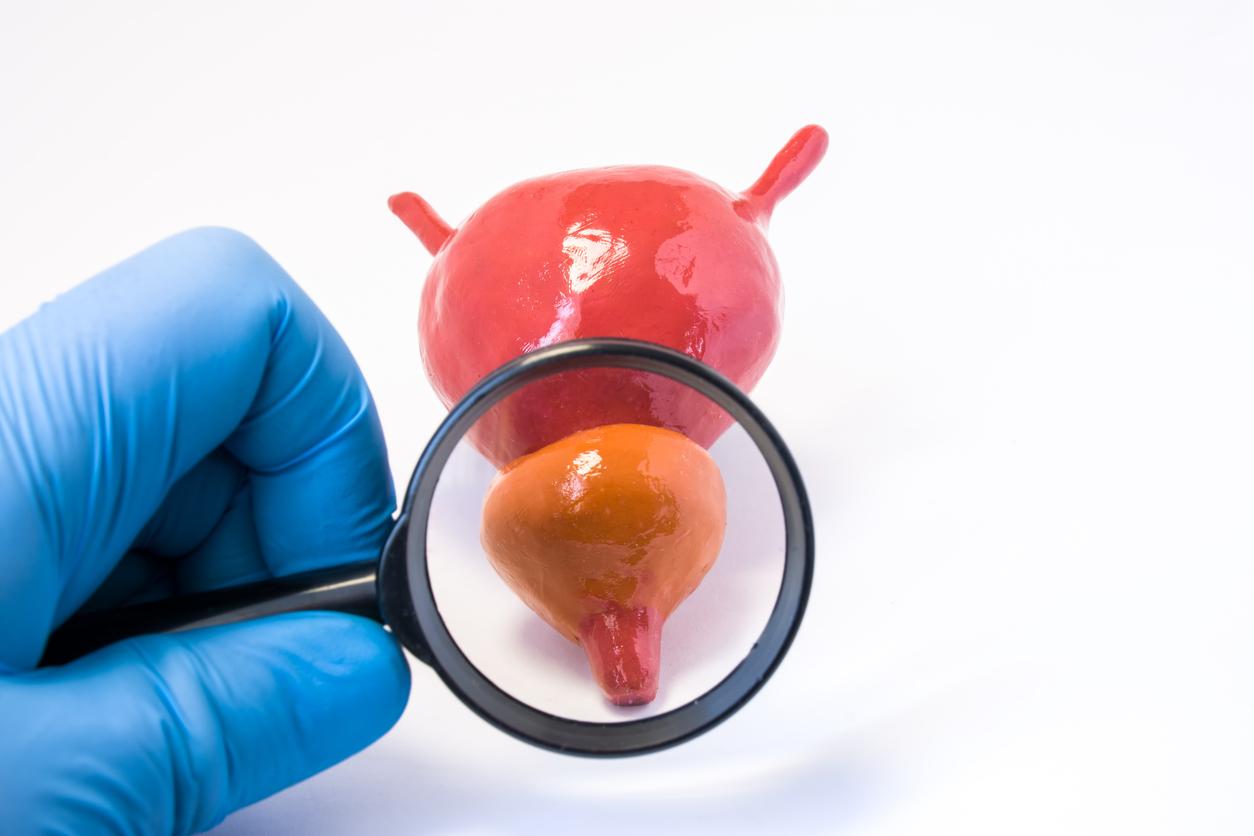Prostate removal and radiation therapy do not improve survival in cancer patients when compared to active surveillance. This is the result of a follow-up over 10 years.

Removal of the prostate is not always justified when cancer is detected. The approach to adopt is regularly discussed. A study published in two parts in the New England Journal of Medicine may well settle this debate for good. Carried out by the University of Oxford (United Kingdom), it shows that between surgery, radiotherapy and active surveillance, no difference emerges on survival. However, the work was carried out for a decade, with 82,429 men aged 50 to 69.
99% survival
Among these volunteers, a prostate tumor was detected in 1,640 cases, using a PSA dosage, which measures a marker protein for the activity of the organ. Randomly, the participants were divided into three groups. Some have undergone a total removal of this gland, others radiotherapy. A third group was simply followed more regularly, in order to observe the evolution of the tumor. This is the first time that a study of this type has been carried out.
The results are rather positive overall: 99% of the men were still alive at the end of the 10 years. An exceptional rate, but above all stable in the three approaches. “This conclusion is all the more appreciable given that the quality of life, including symptoms of depression and anxiety, is also good in the majority of participants.
Heavy side effects
It is especially on the plane side effects that active surveillance stands out. Treatment by surgery induces long-term side effects, which are particularly marked in the year following the operation. Prostatectomy doubles the number of men who have urinary incontinence and sexual problems compared to radiation therapy. They persist for 6 years. Radiation treatment increases the frequency of intestinal disorders. “Each treatment has a different impact and effects, and we must carry out a longer follow-up to observe their balance over the next 10 years”, summarizes Professor Jenny Donovan, who also signs the study.

These side effects may seem necessary in view of the benefits they provide: the progression of the tumor to metastasis is halved compared to monitoring. But this does not translate into improved survival, which puts their interest in perspective. “No progression takes place in three quarters of men under surveillance during the 10 years of follow-up,” said Professor David Neal, co-author of the study. An additional decade of observation will be needed to confirm these results. The stakes are real since the work is part of a strategy to reassess the PSA dosage, the effectiveness of which is questioned.
Watch the program L’Invité Santé
with Prof. François Desgrandchamps (Saint-Louis hospital)
broadcast on March 24, 2016
.















